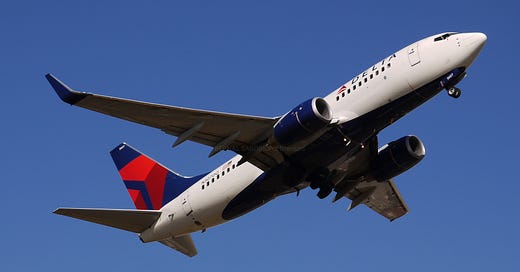
As part of the CARES Act, the main federal economic response to the coronavirus pandemic, America’s airlines were granted $50 billion in federal aid. Half of that was in the form of loans and loan guarantees, and half was direct support for maintaining payrolls. American Airlines, Delta, JetBlue, Southwest, United Airlines, Spirit, and smaller regional airlines have all availed themselves of the money.
Why then, given those billions of dollars, are there all these stories about airlines reducing hours and preparing for massive layoffs?
Because the airline bailout is a mess, and a massive missed opportunity. Here’s what happened.
Unlike other parts of Congress’ corporate bailout, there were some restrictions placed on airlines in return for the portion of their aid related to payroll, which doesn’t have to be repaid: They couldn’t lay off anyone involuntarily until September 30, and they couldn’t reduce “pay rates” or benefits. (There are also restrictions on paying dividends and executive compensation, as well as requirements that the government get a stake in the airlines themselves.)
Perhaps inevitably, the airlines then announced layoffs will occur in October — including up to 30 percent of management and support staff at American Airlines. They’ve also reduced worker hours, arguing that doing so is not reducing “rates,” because workers make the same amount hourly.
The latter move led to a bunch of angry Democrats and one angry Republican sending letters to the Treasury Secretary and airline executives, but if Congress wants certain things to happen, it needs to spell them out, so I guess I don’t blame the airlines too much for exploiting vague language.
Still, taxpayers have a right to feel aggrieved that all their billions bought was a temporary reprieve for thousands of workers who will lose their jobs anyway. And that’s after all the other billions of dollars in support from both state and federal governments airlines have received over the years, and after they spent their recent boom-times not socking away funds for a rainy day, but enriching shareholders and merging with each other, lining executives’ pockets with all those ridiculous fees they pile onto every ticket.
In one more insult, the airlines have been lobbying the Department of Transportation to weaken consumer protection regulations, which means they’re using your bailout money to push for rules entrenching unfair fees and other deceptive practices, as Federal Trade Commissioner Rohit Chopra outlined here.
The news is about as good as receiving one of those texts saying your flight has been indefinitely delayed.
Look, I get that there’s basically zero demand for air travel right now, so airlines making cuts was inevitable short of pumping absolutely obscene amounts of money into them. But other asks could have been made of an industry that even before the pandemic was fundamentally broken.
It’s been clear for a long time that airlines are getting richer and richer while service is getting worse and worse. Nickel and diming flyers into oblivion, while squishing them into ever-tinier seats and refusing to feed them, has been common practice for a while now.
Those annoyances are not some inevitable aspect of flying, but occurred because the government gave up on regulating the air travel market. Instead of treating airlines as a vital transportation network that needed rules to protect consumers and ensure a certain minimum level of service, government let the free market simply do its thing, which resulted in mergers, large swathes of the country being cut off from the air travel network (which the airlines want to make even worse), and today’s absurd pricing systems.
Today, the four major airlines are all owned by the same four big investors: It’s a cartel designed to hose consumers.
The bailout could have been used to correct some of these problems and impose new rules on the airlines regarding price transparency, fairer cancellation policies, or any of the host of other issues that drive flyers bonkers. Congress could have even demanded a new ownership structure. Saving everyone’s job may have been unrealistic, but other asks for the benefit of society weren’t. Some European countries added climate change targets to the national airlines they rescued, for instance.
However, in the rush to do something, Congress here didn’t even bother to try.
Instead, the airlines will be allowed to go right back to business as usual, until the next crisis, when we’ll be back here having the same conversation about flying the not-so-friendly skies.
Thanks for reading this edition of Boondoggle. If you liked it, please take a moment to click the little heart under the headline or below. And forward it around to friends, family, or neighbors using the green buttons. Every click and share really helps.
If you don’t subscribe already and you’d like to sign up, just click below.
Finally, if you’d like to pick up a copy of my book, The Billionaire Boondoggle, go here.
Thanks again!
— Pat Garofalo


